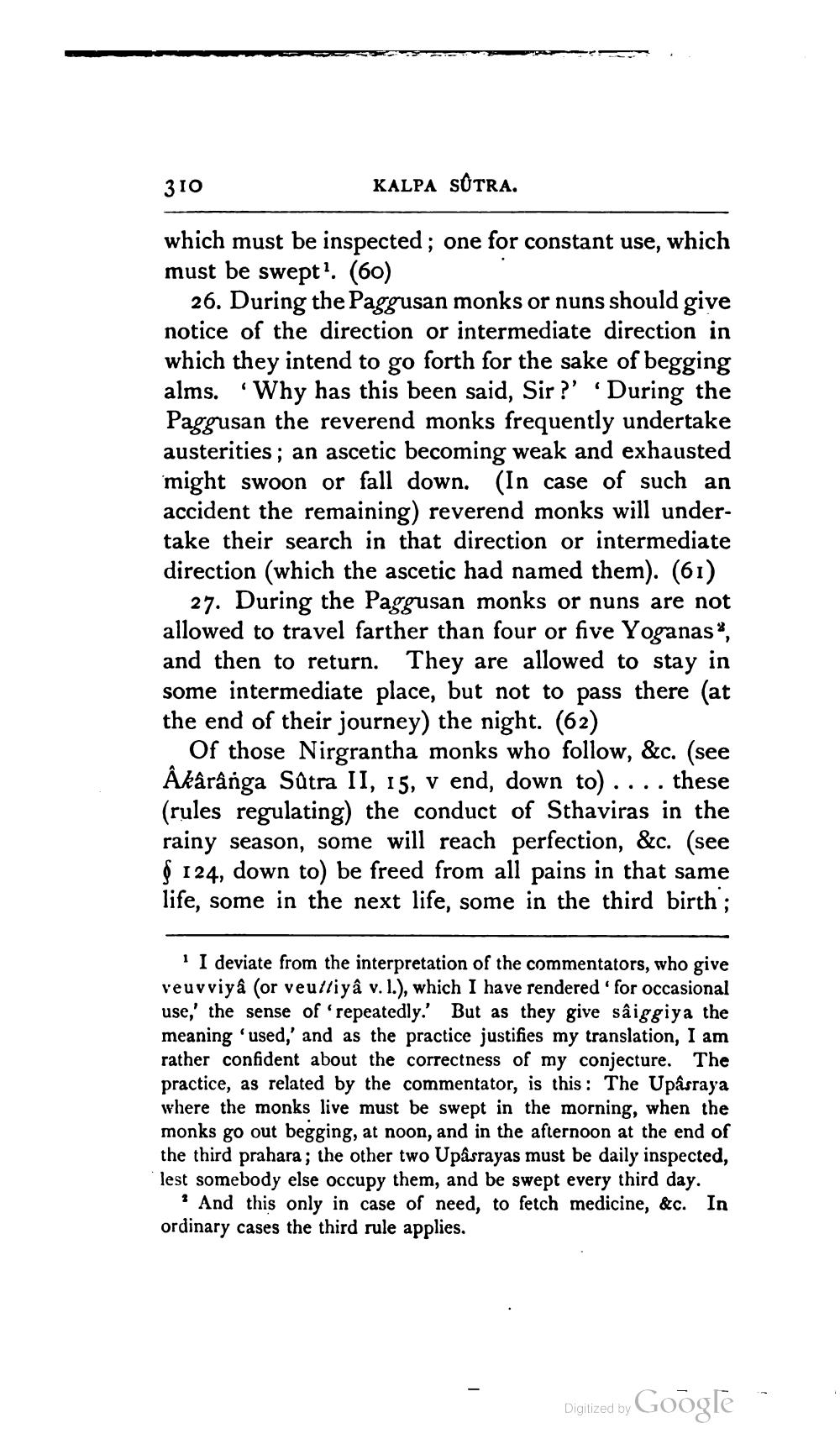________________
310
KALPA SÚTRA.
which must be inspected; one for constant use, which must be swept?. (60)
26. During the Paggusan monks or nuns should give notice of the direction or intermediate direction in which they intend to go forth for the sake of begging alms. Why has this been said, Sir ?' 'During the Paggusan the reverend monks frequently undertake austerities; an ascetic becoming weak and exhausted imight swoon or fall down. (In case of such an accident the remaining) reverend monks will undertake their search in that direction or intermediate direction (which the ascetic had named them). (61)
27. During the Paggusan monks or nuns are not allowed to travel farther than four or five Yoganas, and then to return. They are allowed to stay in some intermediate place, but not to pass there (at the end of their journey) the night. (62)
Of those Nirgrantha monks who follow, &c. (see Åkârânga Sûtra II, 15, v end, down to) .... these (rules regulating) the conduct of Sthaviras in the rainy season, some will reach perfection, &c. (see $ 124, down to) be freed from all pains in that same life, some in the next life, some in the third birth;
I deviate from the interpretation of the commentators, who give veuvviya (or veutliyâ v. l.), which I have rendered 'for occasiona use,' the sense of repeatedly. But as they give sâiggiya the meaning 'used,' and as the practice justifies my translation, I am rather confident about the correctness of my conjecture. The practice, as related by the commentator, is this: The Upåsraya where the monks live must be swept in the morning, when the monks go out begging, at noon, and in the afternoon at the end of the third prahara; the other two Upasrayas must be daily inspected, lest somebody else occupy them, and be swept every third day.
? And this only in case of need, to fetch medicine, &c. In ordinary cases the third rule applies.
Digitized by G
Digitized by Google
.




